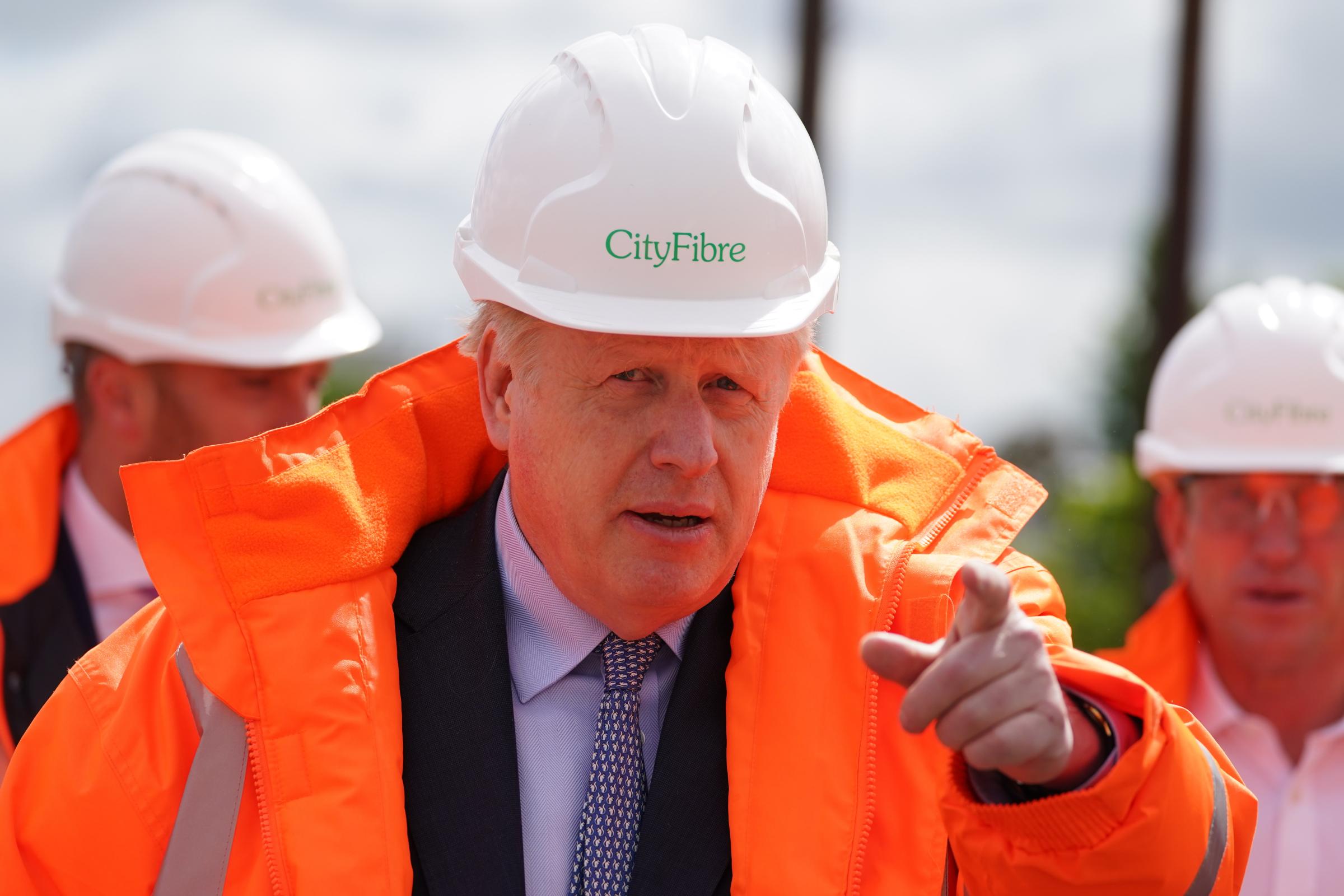
RISHI Sunak’s “criminal” energy plan will penalise firms who choose to invest in renewables over fossil fuels and give cash to wealthy second home owners.
Prime Minister Boris Johnson has boasted about the “big bazooka” support package brought in by the Chancellor, but the policy will also hand over a second £400 grant to second homes and encourage firms to extract more oil and gas in the north sea. Those who do will receive a tax break worth 90% of the windfall tax, almost cancelling it out.
It is understood that this is because the scheme will apply the grant to each individual property’s bills automatically.
The plans have caused fury amongst environmental campaigners who say the scheme will “lock us into unaffordable energy bills” by boosting the country’s reliance on fossil fuels.
There have also been concerns raised that large amounts of the fund will go to households who “don’t need” the support, whilst those on lower incomes will still struggle to survive.
Those on means tested benefits such as Universal Credit and Jobseekers Allowance will receive two payments totalling £650, one in July and a second in the autumn ahead of the energy price cap rise to £2800 in October.
The Scottish Greens blasted Sunak for turning the concept of a windfall tax on rocketing energy profits into a “perverse incentive to drill for more oil and gas”.

The party’s environment spokesperson Mark Ruskell MSP said: “The truth is that big oil and gas companies will take this as a green light from the government to double down on extraction, without a thought for the climate.
“Incredibly, companies will be financially penalised should they choose to instead invest in renewables. Having recently rebadged dirty gas as green, this government is using all its powers from licensing to taxation to deepen our dependence on oil and gas.
“This is nothing short of criminal in the middle of a climate emergency, for the UK Government 1.5 is not alive, it's dead and buried.”
Tessa Khan, director of Uplift which organised the successful Stop Cambo campaign against the opening of the oil field in the north sea, said that the levy was a step in the right direction as firms like BP and Shell have paid “no tax” on their North Sea operations for years and in that same period were given extensive tax breaks.
Khan pointed out that even with the windfall tax, the rate oil and gas firms will pay in the UK will still be lower than the global average.
She added: “Sunak’s proposed relief on investment incentivises more oil and gas fields in the North Sea, which will only worsen the climate crisis and lock us into unaffordable energy bills, instead of accelerating the growth of affordable renewable energy.

“The majority of North Sea oil and gas companies are not investing anything in UK renewables and the investment loophole in the levy will only make this worse.”
Khan also said that UK households will not see any benefits from backing fossil fuel firms as 80% of UK oil reserves are exported overseas and it will only profit the companies.
Mary Church, head of campaigns at Friends of the Earth Scotland, said that the measures are "insufficient" to tackle the cost of living crisis.
She said: "A windfall tax like this can contribute as a short term fix, but ultimately nothing short of a radical transformation of our economy and energy system to deliver a just transition away from fossil fuels and into renewables for workers, communities and the planet is needed.”
Meanwhile, Sunak has claimed second homes receiving a second £400 energy bill grant will only account for a small proportion of payments.
The Chancelllor told BBC Breakfast there are only a couple of “practical” ways of delivering payments, either universally or through the council tax system, which could exclude some deserving individuals, and said second homes only account for 1-2% of the housing stock.
However, Paul Johnson, director of the Institute for Fiscal Studies, questioned the universal nature of the grant.
He told BBC Radio 4's Today programme: “Whether it’s needed for all households, I think, is more of a difficult point.
“£100 off for each household in the country costs, each £100, costs something like £3 billion and a lot of that money, frankly, will go to households who don’t desperately need it.
“I’m sure they’ll appreciate it, but won’t necessarily need it.”
He added: “It really will mean a lot of people who don't need this help will get it - people who are on quite high incomes and, indeed, the very, very large numbers of households who saved a great deal over the Covid period.”

Meanwhile, the Prime Minister lauded the support package as he tried to deflect from partygate questions in Stockon-on-Tees on Friday and appeared to suggest the measures would be enough to tackle the crisis.
He told broadcasters in a pooled clip: “I’m not going to pretend that this is going to fix everything for everybody immediately. There is still going to be pressure.
“But it is a very, very substantial commitment by the Government to getting us through what will be still a bumpy time with the increase in energy prices around the world.
“What I think it will also help us to do is to get us through until I believe the prices will start to abate and we will be in a much, much stronger position.”







